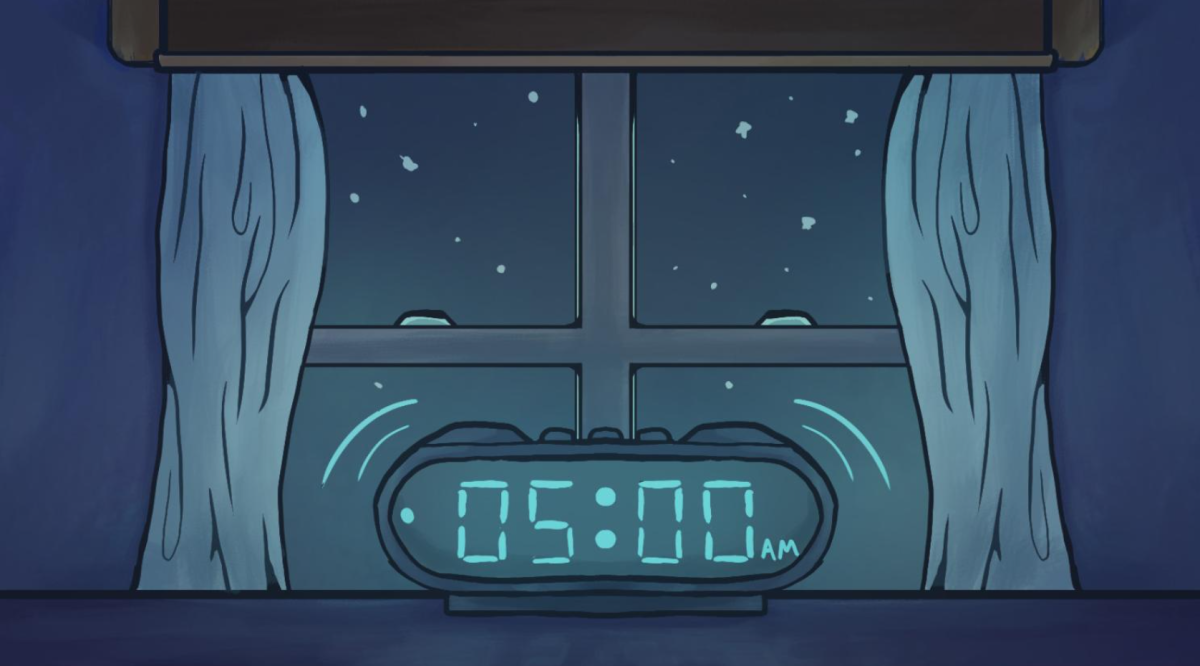The average teenager requires eight to ten hours of high-quality sleep every night to properly function in daily activities such as school or extracurriculars. Adequate sleep allows a teenager’s developing body to focus, study, exercise and perform daily tasks by restoring the brain’s energy. Sleep is one of the most important factors in a growing body’s health as rapid eye movement (REM) sleep restores the immune system.
According to Stanford Medicine, over 87% of high schoolers don’t get enough sleep. Many teenagers’ packed school and extracurricular schedules only delay the rise of melatonin levels — which help signal the body to shut down for the night — by producing stress, keeping the body awake.
Fortunately, there are multiple ways for teenagers to improve their sleep schedules.
#1. Limiting caffeine intake
It’s common for teenagers to jump-start their day with a cup of coffee or an energy drink. As caffeine is an addictive drug, many of those who drink it — especially those who are young and still developing — can get easily hooked. Overconsumption of caffeine creates a hormone imbalance, delaying the sensation of “sleepiness” and negatively affecting sleep quality. The body will get less stimulated at night by limiting intake and naturally tire earlier.
#2. Exercise
Consistent movement has many benefits, one being its ability to enhance sleep quality. When exercising, to signal to the body that it needs to stay awake, it’s temperature elevates. Approximately 30 minutes to an hour after exercise, body temperature decreases again, allowing the brain and body to wind down for the day. Additionally, exercise can improve mental health, limiting stressors and relaxing the brain.
#3. Avoid electronics or blue light before going to bed
Teenagers — especially high schoolers — are notorious for their overuse of technology. On average, teenagers check their phones 100 times a day, and 45% of teenagers are online “almost constantly.” Electronic devices contain blue light, which severely suppresses the production of melatonin, a hormone your brain generates that causes the feeling of sleepiness. As a result of less melatonin being produced within adolescents, 70% of teenagers don’t get enough sleep. OSF Healthcare recommends that children aged 13-18 limit their screen time to two hours a day. While it is ideal to limit screen time overall, the most important thing is to avoid looking at screens the hour before sleep since blue light doesn’t just stimulate the brain, but also stimulates a rise in dopamine levels, which can be addicting.
#4. Designate a bedtime and stay consistent with it
With homework and extracurricular activities, high schoolers often stay up late cramming, completing assignments, going to practices or exercising. Staying up late affects the human body, as it disrupts the internal clock, which controls sleep and hunger, among other things. After disrupting the internal clock, falling asleep and waking up consistently can be much harder. If students aim to achieve the recommended bedtime for teenagers — 10-11 p.m. — the body will begin to develop a routine, allowing it to wake up and become tired around the same time every day and night.
#5. Create a relaxing nighttime environment
Overstimulating the brain with lights, music, noises and stressful tasks makes it difficult to relax. Humans sleep at night because they are diurnal — active during the day instead of night — which means they crave darkness to fall asleep. Ensuring that the surrounding environment is dimmed, quiet and the mind is clear creates a peaceful and stress-free mind space. This is essential for getting good-quality sleep.
Incorporating these tactics to improve sleep schedules should result in long-term mental, physical and psychological benefits, including lower stress levels, mood improvement and a stronger immune system.

















